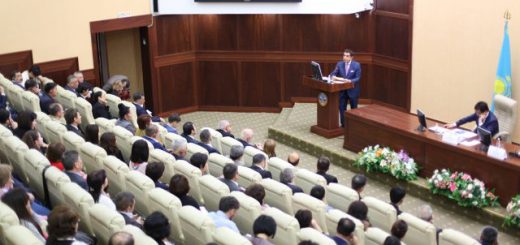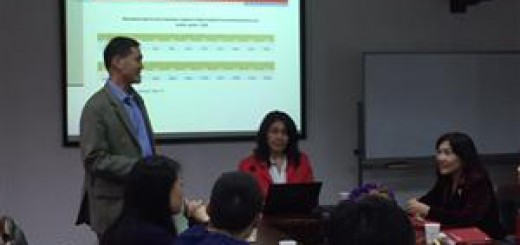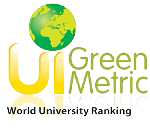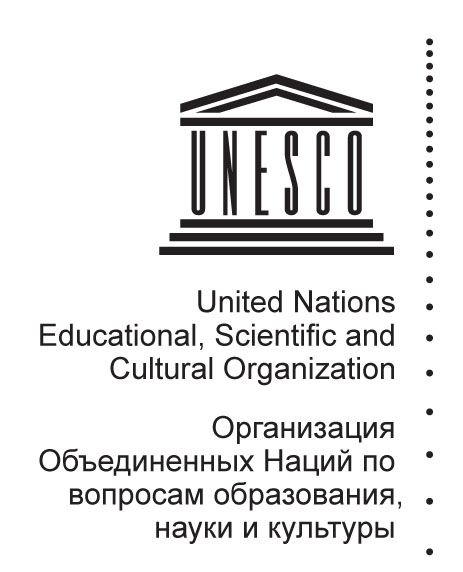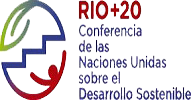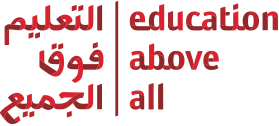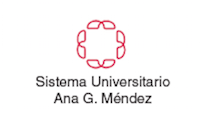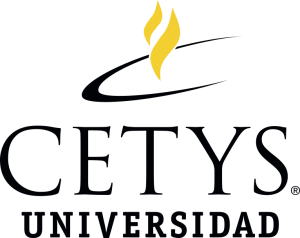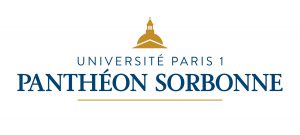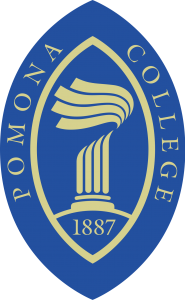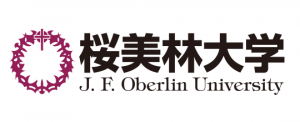The 2nd United Nations Academic Impact Seoul Forum CONGRATULATORY REMARKS
Seoul, 20 May, 2015 Mr. Secretary General of the United Nations, Ban Ki-moon, A former Prime Minster of Republic of Korea, Lee Hong-gu, Professor Jeffrey Sachs, special advisor to the United Nations Secretary General on Millennium Development Goals, My dear friend Dr. Kim Young-gil, co-chair of the United Nations Academic Impact in Korea, Excellences, ministers, professors, dear students, ladies and gentlemen: I am deeply honored to be here for this 2nd United Nations Academic Impact Seoul Forum. And I think this is not the coincidence, Mr. Ban Ki-moon that you decided to convene this forum on the margins of the Global Education Forum that was opened yesterday by Her Excellency President Park and the Secretary General of the United Nations Ban Ki-moon. I think this is the expression of the leadership. The leadership of Korea, the leadership of the United Nations, the leadership towards Education as an essential human right and as a foundation of social economic justice and success, that was so also eloquently just mentioned by Mr. Lee Hong-gu, the former prime minister of Republic of Korea. Which has a deep roots, deep roots here in the Korean society, starting with King Se-jong the Great, who created Han-gul as the alphabet for the Korean language which had such a profound impact on Korean society and history. And UNESCO is very proud to host a special prize for literacy named after King Se-jong. We celebrate every year on September, on the 8th of September which is the International Literacy Day, this important prize. And we know that Korea’s transformation did not happen by itself. And we are very proud, also ladies and gentlemen, that we at UNESCO we hold, we keep a special book. This is the text book that Mr. Ban Ki-moon when he was a student here and the book which was printed by UNESCO and presented here as a gift to the Korean students, to the education given us also from the Korean National Commission, and we are holding it in a special postment if you come to UNESCO, please come down in the main lobby and you will see this very special gift that we are keeping as a symbol, as a symbol of what United Nations and UNESCO has given to the Korean people as a symbol of how important education is, as a symbol of respect also, though it’s the Secretary General Mr. Ban Ki-moon. By holding here, the World Education Forum, the forum that has gathered more than 130 ministers and high officials from different countries to discuss the education for the 21st century the educational goal for the Post-2015 Agenda. UNESO, with co-organizers with United Nations family, wanted to send a very strong message to the world, to the political leaders. The message that the education is the smartest investment they can make today for peace against extremism and for sustainable development. This builds on the vision of education for all that UNESCO started already 15 years ago in Dakar with the similar forum and beyond this, I would say for the next Millennial Development Goals. And let me just say that this wonderful yesterday opening, testified that the success and the remarkable progress that has made since 2000, is of course a big success of the United Nations first and for most, and then of course of all its members but we are still not that yet there. We still have 58 million children out of school. We still have seen that girls and women are hit hardest. We see that in conflict areas, children and youth, as the Secretary General just mentioned, bear the hardest hardships and they may be prone to extremism. We know that still there are 780 million illiterate adults and also, we know that unless we invest in education we won’t see our responses, the right responses, to climate change, to some of the loss of biodiversity, to some of the important, I would believe, responses we need to give to natural disasters to risk reduction and also to conflict. So we need partnerships, we need partnerships in order to develop this right responses, and I see here, the biggest I would say, the most important contribution of the United Nations Academic Impact Initiative. Because deepening synergies, between United Nations and high education, initiated the Academic Impact already 4 years ago by the Secretary General in our ambition to build capacity, to create global networks, to create and share knowledge, for the benefit for all, is what we need today. I think it complements, also, in a wonderful way UNESCO’s engagement with academic institutions, with universities for higher learning throughout a global network of university chairs, throughout twining programs of different universities, of establishing different centers, national centers in universities under the offices of UNESCO. And also, having the importance and emphasizing the importance of the Sustainable Development Solutions Network, launched in 2012 where Professor Jeffrey Sachs, my dear friend is playing the lead role and I want to commend him for what he has been doing through Sustainable Solutions Network. It’s important advancement in this partnerships and synergies between different academic contributions. And I think that while we are shaping the new global sustainable agenda, we need responses, we need responses now. We need responses for each of the future Sustainable Development Goals that will be adopted in September. And we must not just crossover policy alliance. We need to integrate policy. We need to nurture sources of knowledge and innovation. We need also to look at how we bridge education and Sustainable Development Goals. And I think this was the deep meaning of the UNESCO’s conference, World conference on education for sustainable development that we have organized last November in Aichi in Nagoya in Japan, because we need the high education in order to be involved into educations for sustainable developments. We need to mobilize research for decision making, for capacity building, we need to craft new forms of global citizenship. What is in fact one of the initiatives launched once again by the Secretary General thorough his Global Education First Initiative. And I would like once again to commend him because his is the first Secretary General that put on the global political agenda, Education. And I think by putting on the political agenda, Education, he was very bold, very courageous in order to appeal to the political leaders that without education, nowadays, we cannot have peace and we cannot have sustainable development. Because we need education, its transformational force, knowledge, new technologies about how to live in a world and the pressure. So education for global citizenship, taken also very strongly by Korea, making it one also of the lead priorities in its national educational polices and taking it over also to the world is once again a testimony of Korea’s leadership in education. So I do believe that the guiding framework on global education that UNESCO is also providing and contributing to the United Nations efforts to craft a new goal on sustainable sustainability through education is one of the innovations, one of the new ideas that we are putting forward to the global political community to take it forward. And of course, because we are talking about academic impact, we are talking about universities, we are talking about academia, and we are talking about students. I think that what you, the Academic Impact have a responsibility to craft the new citizens for tomorrow from the students about values, about ideas that will bring, what critical thinking, what the Secretary General just appealed for challenging, challenging politicians, challenging responses, giving new ideas, is I believe what we want to see students as global citizens of tomorrow. And I am convinced that the Global Academic Impact, United Nations Academic Impact that that UNESCO is supporting and will closely work with, we discussed already a couple of months ago, I think all this wonderful initiatives with the Korean Chapter is what we need for tomorrow. Because in a globalizing world higher education must become a beacon for new forms of global solidarity at the end of day of global citizenship. So thank you for your commitment and rely on UNESCO for your future work. Thank you. 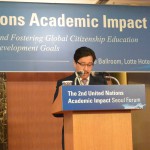
Устойчивость
Выступление д-ра Галым Мутанов,
Президент казну им. Аль-Фараби
Ваше Превосходительство Пан Ги Мун! Ваше Превосходительство Ирина Бокова! Ваше Превосходительство Ким Ён Гиль! Дамы и господа! II) Сегодня мне выпала большая честь участвовать в дискуссиях по программе Академическое влияние ООН (UNAI) по устойчивому развитию. И это особенно большая честь для меня, выступать по этим вопросам в году, когда ООН и все мировое сообщество обсуждают вопросы в области устойчивого развития после-2015 г. (post-2015). Мы ожидаем, что серия конференции под эгидой ООН и Генеральная Ассамблея ООН в конце этого года придут к принятию Целей устойчивого развития тысячелетия (SDG) в глобальную повестку дня. III) Казахстан показал свое лидерство в Евразийском регионе работая по различным аспектам устойчивого развития в течение более чем десяти лет. Президент Нурсултан Назарбаев предложил такие глобальные инициативы, как «Зеленый мост” для Рио + 20 в 2011 году с упором на глобальное сотрудничество в строительстве зеленого мира и Астана ЭКСПО в 2017 с упором на тему «Будущее энергетики». IV) Университет им. аль Фараби вносит интеллектуальный вклад во многие инициативы Казахстана и в международные инициативы, как ведущий университет не только в стране, но и в регионе. V) В этом плане, это был визит команды университета Аль Фараби в штаб-квартиру UNAI в Нью-Йорке и в Колумбийский университет в 2011 году который дал старт процессу кооперации по данному направлению. Тогда мы узнали о UNAI в качестве нового подхода инициированного Генеральным секретарем ООН Пан Ги Муном. VI) Идея была благородная и в то же время сложная: найти творческие и инновационные пути для университетов и систематически способствовать устойчивому развитию нашей планеты. В этом контексте и в сотрудничестве с UNAI наш университет внес свой вклад в работу Форума Рио+20 в 2012 году и в консультации под эгидой ООН «Будущее, которое мы хотим» в 2013 году и во многие другие инициативы. VII) Я твердо верю, что это была наш упорная и инновационная работа, и которая способствовала тому, что в марте 2014 университет аль Фараби был выбран в качестве глобального хаба UNAI по устойчивости. Мы очень рады за оказанную высокую честь и огромную ответственность, которые мы стараемся оправдать. Мы благодарим Вас, Ваше превосходительство г-н Пан Ги Мун, за принятое решение. VIII) Университет им. аль Фараби также много лет плодотворно сотрудничает с ЮНЕСКО по многим вопросам, и особенно по проблемам устойчивого развития. В 2014 г. принято решение о создании кафедры ЮНЕСКО по устойчивому развитию с дальнейшим продвижением открытия регионального хаба ЮНЕСКО по устойчивому развитию по программе UNI-TWIN. Мы благодарим Вас, Ваше превосходительство г-жа Ирина Бокова, за принятое решение. IX) Мы разработали нашу философию эффективной работы — что мы хотели бы предложить другим университетам в качестве модели – которая основывается на работе на трех уровнях: международном, региональном, и Национальном. X) В рамках нашей философии и 9-го принципа UNAI «Обязательство по содействию устойчивости посредством образования» мы провели ряд мероприятий по вопросам устойчивости, и которые можно разделить по нескольким основным блокам: 1) Научно исследовательские; 2) Интеллектуально-программные мероприятия (например, с м/н академией искусств науки); 3) Образовательные и просветительское;
XI) Среди нескольких наших крупнейших инициатив я хотел бы подчеркнуть три следующие и хотел бы пригласить все университеты UNAI присоединиться к ним: а) «Модельный план устойчивого развития университетов», предложенный в 2014 году и одобренный 3 азиатским форумом университетов. (Детали Модельного плана доступны на нашем сайте www.unaihub.kaznu.kz) б) Постоянная дискуссионная площадка G-Global по проблемам устойчивого развития, которая модерируется Университетом им. аль Фараби. (Платформа G-Global доступна на веб-сайте www.group-global.org;) в) Международная студенческая инициатива на базе университета им. аль Фараби «Model United Nations- New Silk Way» В заключение я хотел бы выразить глубокую признательность Его Превосходительству Генеральному секретарю Пан Ги Муну и Ее Превосходительству Ирине Боковой. А также всей команде UNAI за поддержку и сотрудничество. Спасибо вам большое за внимание!


